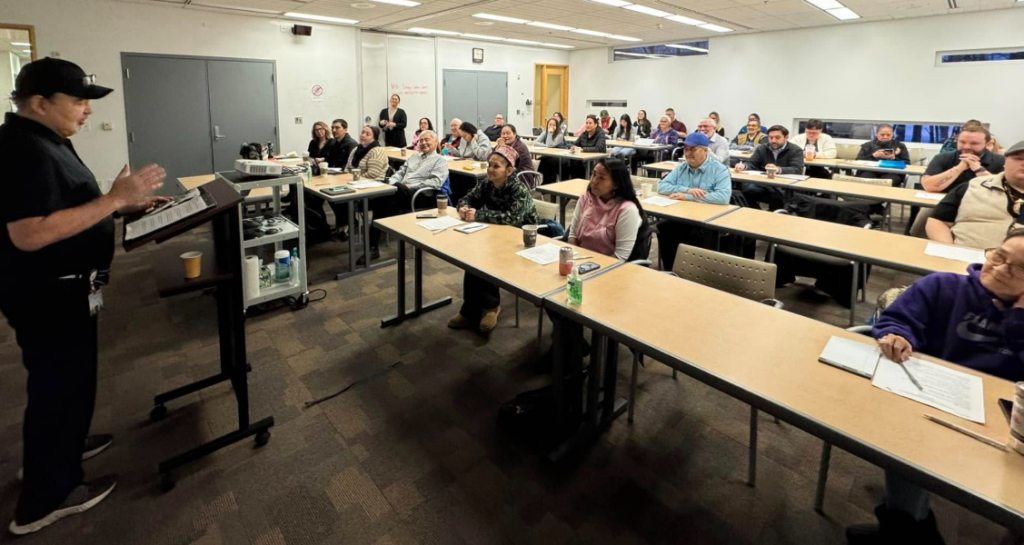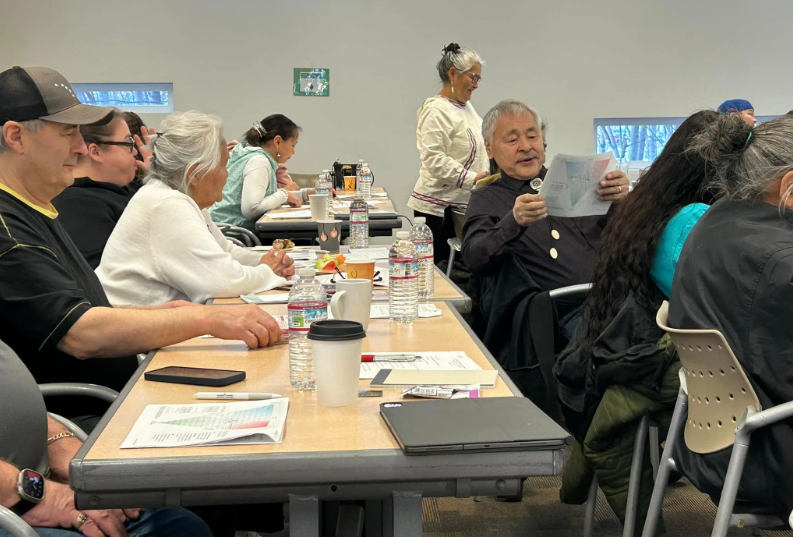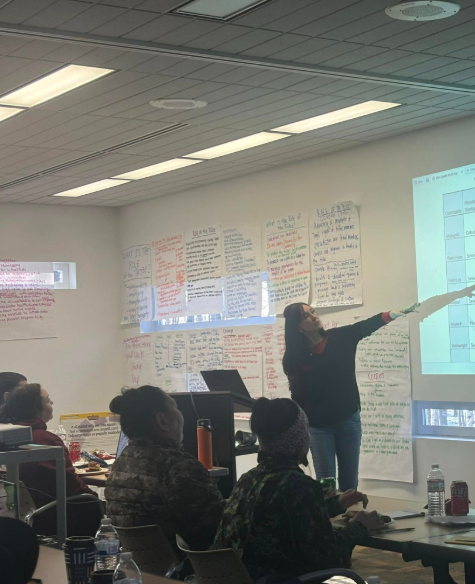
Across Alaska’s Arctic Slope, communities are focused on food security and sustaining subsistence traditions. The Arctic Slope Community Foundation (ASCF) is playing a vital role in that effort. Guided by local knowledge and deep relationships, ASCF supports efforts grounded in regional priorities and a deep commitment to Iñupiat culture.
ASCF’s work is shaped by the voices of tribal leaders, Elders, and youth, with a clear mission to strengthen communities and pass down traditional knowledge to future generations.
Listening to the Local Voices
To better understand where support was most needed, ASCF Executive Director Patuk Glenn and her team invited 25 Tribal leaders from eight Arctic communities to gather and share their priorities. One issue rose to the top: food security.
In the Arctic, as in many Alaska Native communities, subsistence is about more than putting food on the table. It’s about identity, self-reliance, and the knowledge passed from one generation to the next. It’s how families stay connected to the land and each other.

From these conversations, ASCF developed a plan to host a series of hands-on workshops to teach skills that support subsistence and long-term food security. Each village shaped its own approach, choosing workshop topics reflecting their specific needs and way of life. For example:
- Wainwright: With whaling central to the community’s food system, this workshop will teach young people how to sew umiat – lightweight seal-skin boats that have been used in whale hunting for generations. Preserving this tradition helps ensure that hunting preparations and the sharing of whale remains part of how the community provides itself with long-term food security.
- Anaktuvuk Pass: Relying heavily on caribou, this community chose to focus on Arctic survival skills. Through the workshop, hunters will learn how to read the land, navigate rivers and mountains, and identify safe, accessible hunting areas. In a rapidly changing environment, knowledge of the land determines survival and a successful hunt.
“In our communities, food security is as much about access as it is about knowledge,” says Patuk Glenn. “When we teach our younger generations how to hunt, harvest, and prepare traditional foods, we give them the tools to sustain themselves and their families. It’s how our communities have thrived for thousands of years and how they’ll continue.”
The Path Forward
Despite strong community support and thoughtful planning, the project now faces a significant hurdle. A $600,000 federal grant, meant to support workshops across all eight communities, was unexpectedly cut due to federal budget reductions this year. This setback means ASCF is now seeking additional resources to make these workshops come to life.

With support from the Alaska Community Foundation, the Arctic Slope Community Foundation will move ahead with the food security workshop in Anaktuvuk Pass. However, the need goes beyond a single community. Preserving traditional subsistence skills and building long-term food security depends on strong partnerships and investments in locally led solutions.
Want to help?
Visit ArcticSlopeCommunity.org to learn more about how you can support the Arctic Slope Community Foundation’s work.
ASCF is one of five community foundations, along with ACF’s network of 11 local Affiliates, whose on-the-ground leadership helps guide giving to where it’s needed most, informed by local knowledge.

